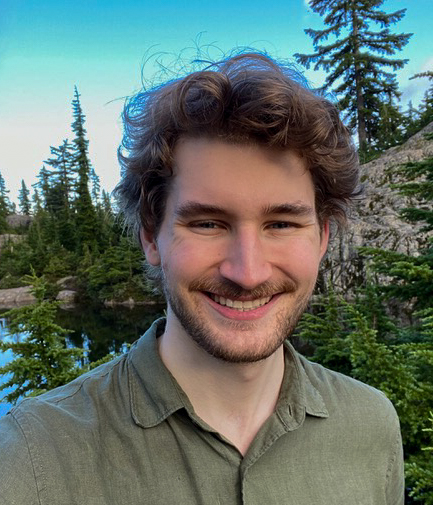

Kyle Baanders
Kyle Baanders is a fifth year student majoring in Sociology and minoring in Urban Studies.
His honours thesis examines online communities centered around geek- and masculine-coded topics and figures. Kyle uses ethnographical tools to understand how these communities regulate their own values and members
Outside of school, Kyle spends time playing games, working at the AMS Food Bank, going to concerts, and despairing.
Integral to online communities are regulation tendencies: both formally in the removal of content and informally in community behaviour. A disproportionately influential subgroup of online communities are masculine and geek-coded, being based around fandoms or online commentators and often serving as entry points for more extremist communities. Much of the literature on this field focuses on these extremist spaces, leaving a research gap on moderate communities.
My research question is: what drives moderation on these geek-adjacent masculine coded online communities? This concerns what or who moderation is directed towards as well as language and practices that community members use to encourage certain behaviour.
My methodology is an ethnography directly observing a small number of forums periodically in real-time as well as searches on past posts in these spaces. My observation guide focuses on aforementioned themes of masculinity, group identity, and community and moderator interactions.
In-progress analysis indicates that some underlying drives of such behaviour as idolization of masculine figures and a disdain for formal moderation is a tension between individuals wishing to present themselves as independent while at the same time longing for connection. Other behaviour, such as the accusation that disagreement is often caused by bad actors infiltrating the community, serves to reaffirm community commitment and dissuade dissent.
The significance of this research is that understanding regulation of these communities can provide further insight into an under explored side of online communities, as well as provide meaningful information on mechanics of how radicalization occurs in these spaces to work against these processes.
How did you become interested in this topic? Why did you choose it for your thesis?
I’ve been active online from a pretty young age, so I’ve been interested in this topic for quite a while. The first Sociology paper I ever wrote in first year was on digital communities.
I really love the medium games, and I feel like I should slot naturally into these spaces, but I’ve also always felt disconnected from these spaces due to their content being very reliant on cultural topics that slant to the right. And in looking it over it casually over the last few years, I’ve found myself asking questions about these communities that I haven’t always found answers to. Which made it a pretty easy jump to talk about.
Can you summarize your project and its main findings for us?
I’m still going through coding, so I can’t present full findings yet. But my research question concerns how geek and masculine online communities regulate and moderate themselves to maintain their set of values and preserve a sense of belonging. These spaces are just upstream of more extreme communities that is commonly referred to as “incel” spaces, to give a sense of where they stand.
For findings, I’ve found a really huge dislike for formal moderation—moderators get criticized very frequently, and not entirely without reason, as they do operate rather inconsistently. And informally, these online communities lean rather heavily on traditional gender roles in pretty much all contexts, and they have a lot of figures they draw on as positive or negative examples of behaviour.
What was your favourite part of doing research?
I really enjoyed the data collection process. My process more or less consisted of me refreshing these spaces for periods of around an hour, and watching conversations develop was pretty interesting.
It was fun seeing when my expectations of how these conversation would go got disrupted, or on the opposite end, when a comment popped up that was pretty much exactly what I thought would get posted. And then seeing in real-time how fast and for what moderation happened was also interesting.
Why did you choose to major in Sociology? Why did you decide to apply into the honours program?
I took a ton of different courses my first year and a half at UBC: geography, film studies, math, computer science, etc. I found most interesting my sociology classes the most interesting across the board, and this field was the one I enjoyed learning more about the most. So it was a rather simple decision.
My decision to apply into Honours was a mix of wanting to push myself a bit harder and wanting to learn more about something that I haven’t had the chance to explore in many of my classes.
If you could continue this project, what other facets to your topic or research question would you want to explore?
I would like to do some interviews or more personal analysis to get a better sense of what individuals in these communities think, as opposed to focusing entirely on the content they produce and the comments they make.


